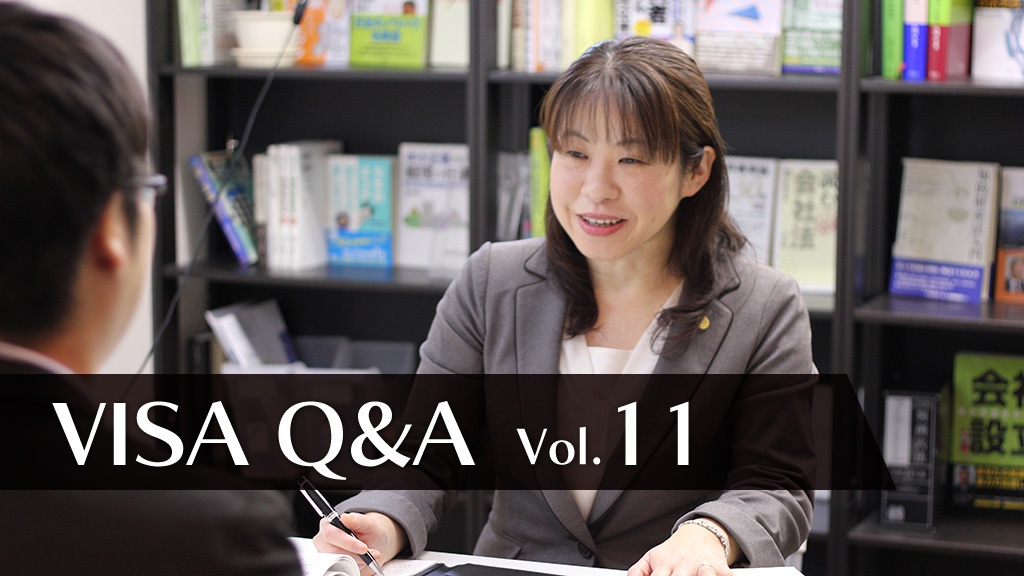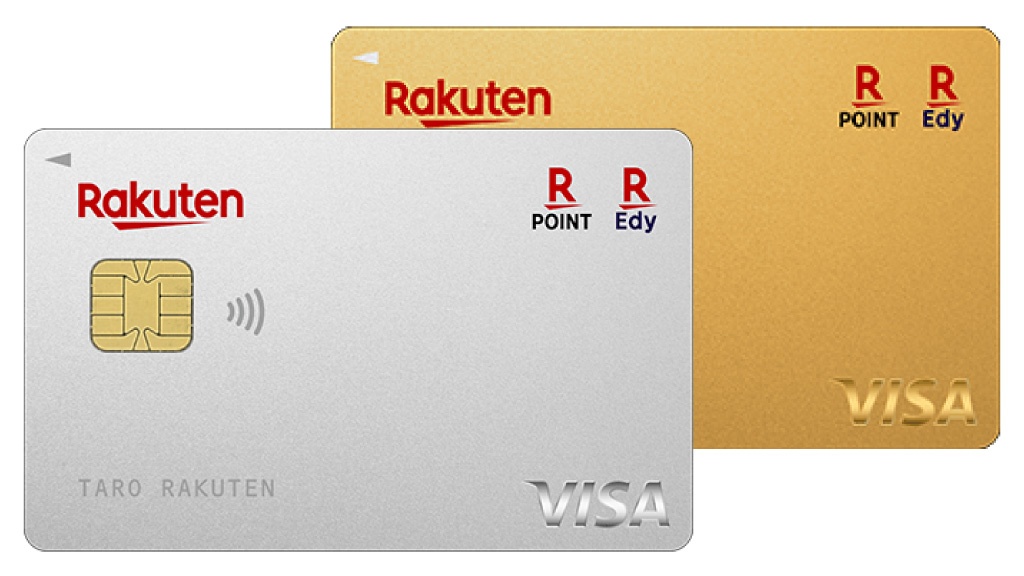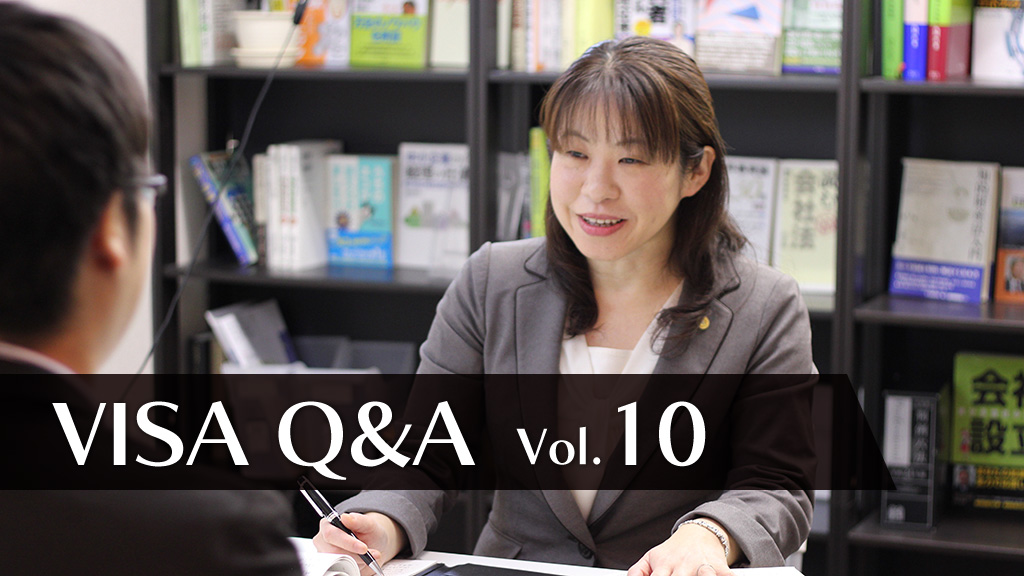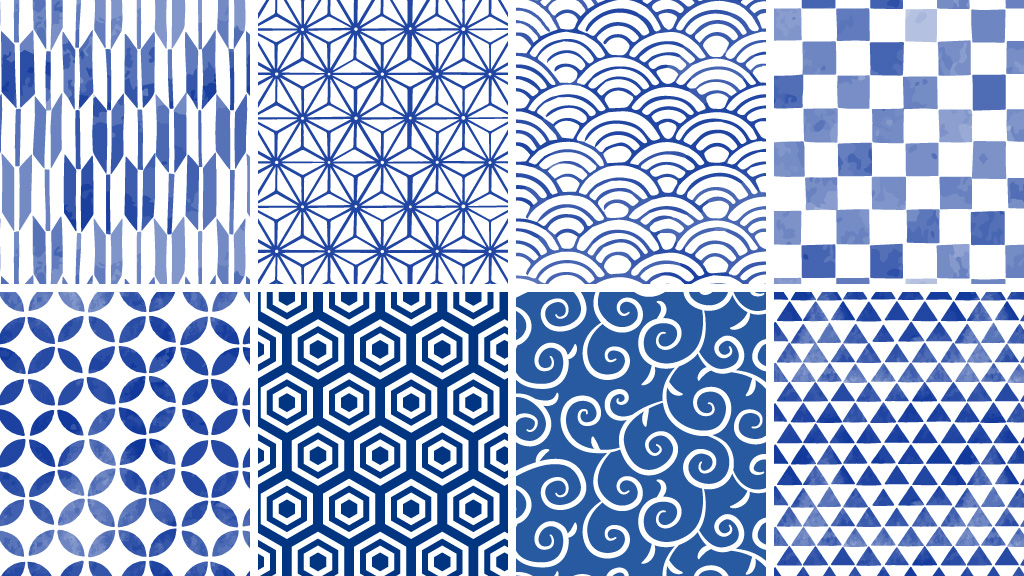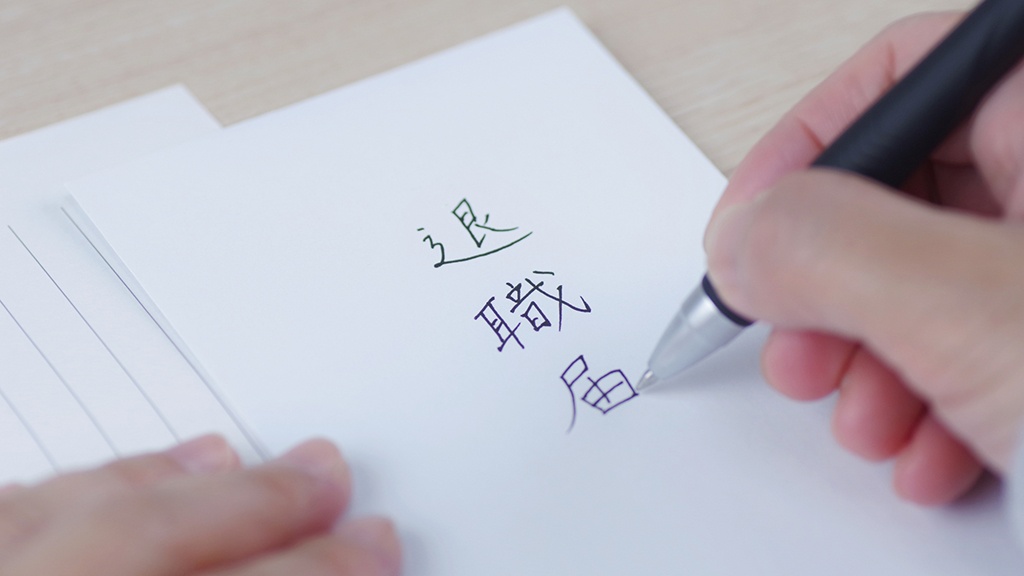What are Onomatopoeaia and Mimetic Words? Useful Onomatopoeia Quiz!
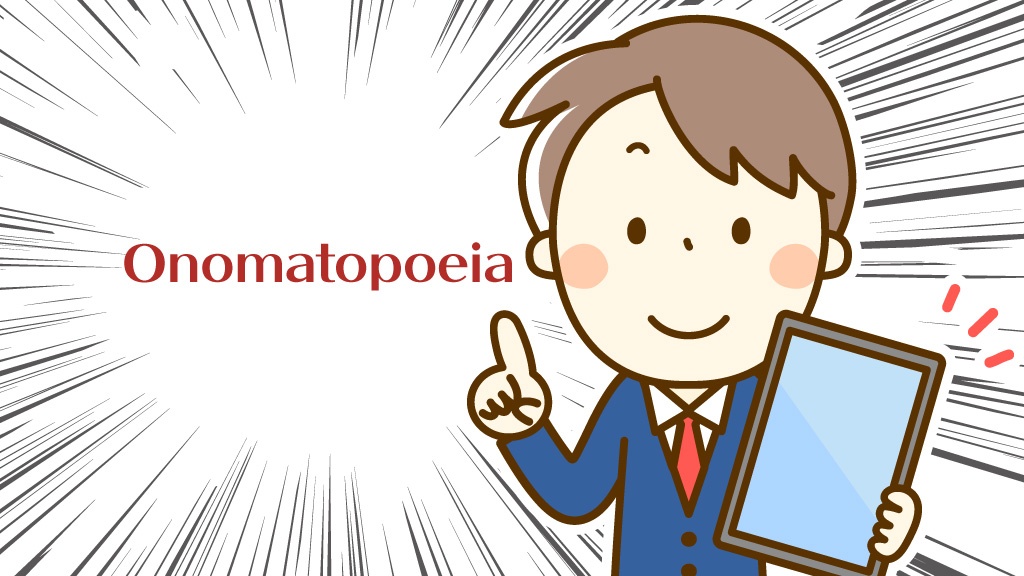
This post is also available in 日本語
It is said that the Japanese language does not have many verbs for expressing the state of things or emotions. Mimetic words are very often used to compensate for this. If we add imitative words that express voice and sound, there are thought to be approximately 4,500 onomatopoeia words. This is not as many as are used in the Korean language, but it can be thought of as a considerable amount when compared to other languages. On this occasion, we are going to have a quiz on the onomatopoeia words frequently used in business. Challenge yourself and take the quiz!
Contents
通勤ラッシュの電車は、いつも〇〇だ。
The train during the commuter rush hour is always 〇〇.

Correct answer: B
“GYUUGYUU” refers to the state of being tightly packed or pressed in. Therefore, this refers to the condition in which people are packed so tightly in the train that they “cannot move”. “SUKASUKA” refers to a condition where there are many gaps.
彼女はいつも〇〇しているので、相談しやすい。
She is always 〇〇 so is easy to confide in.

Correct answer: A
The term “NIKONIKO” refers to a continuous state of smiling in a calm and warm manner. ”SHIKUSHIKU” refers to the state or voice when weakly crying in a lifeless manner.
彼女は留学生活が長く、日本語が〇〇だ。
She has been studying here for a long time, so her Japanese is 〇〇.
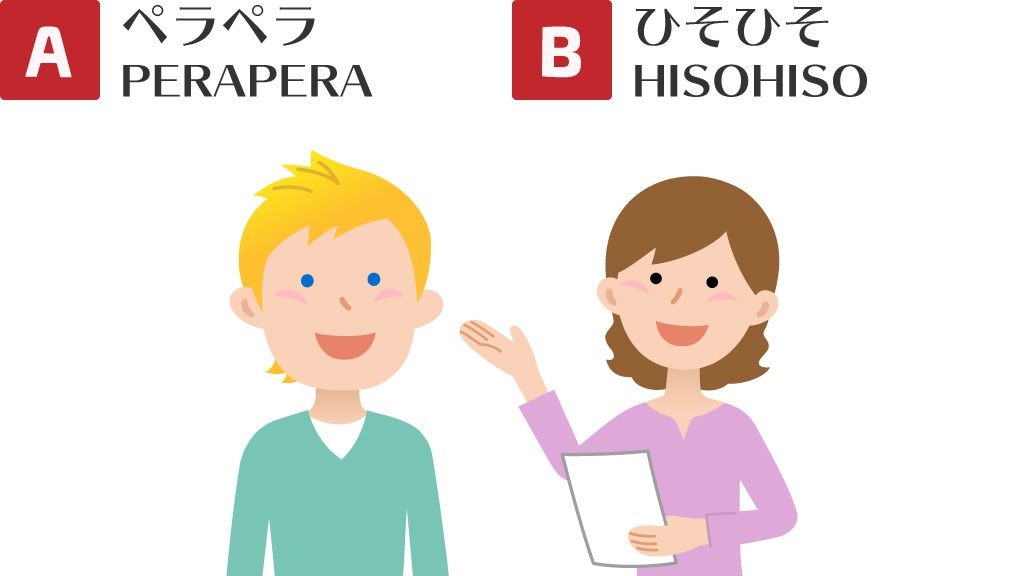
Correct answer: A
“PERAPERA” refers to the state of speaking a language other than one’s native language fluently. It also has the meaning of “speaking casually”, or “casually conveying secret information”, so you should take note of the context in which it is used. “HISOHISO”, on the other hand, refers to the condition or voice when speaking in a concealed way so others cannot hear you.
みんなから良いアイデアがでたので、打ち合わせは〇〇と進んだ。
Everyone produced good ideas, so the meeting proceeded in a 〇〇 way.
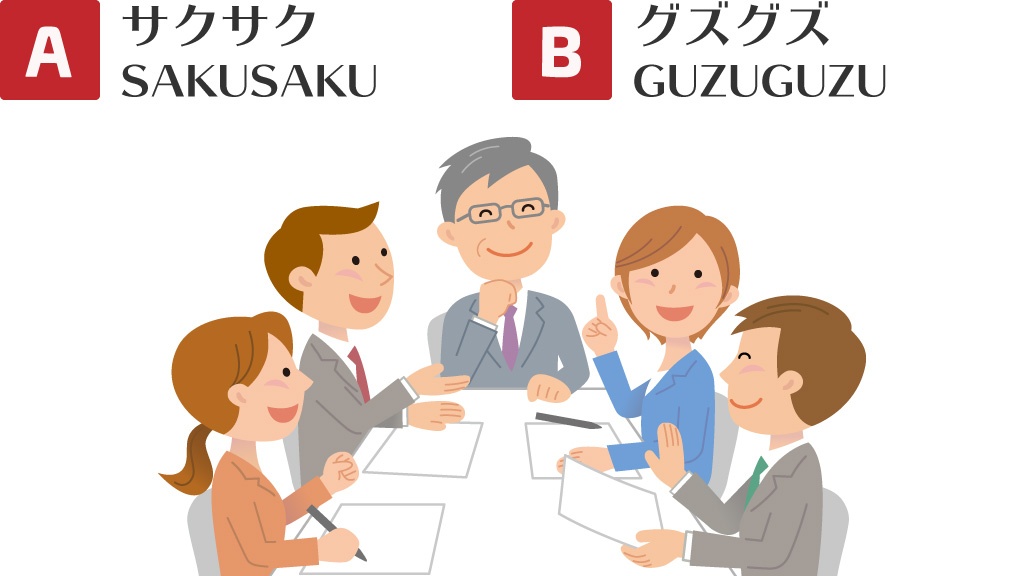
Correct answer: A
“SAKUSAKU” refers to the state of something proceeding without impediment. “GUZUGUZU”, on the other hand, refers to the condition of lacking skill with movement or behavior, thus wasting time or holding up progress.
朝からずっと食べていないので、おなかが〇〇だ。
I have not eaten since the morning, so my stomach is 〇〇.
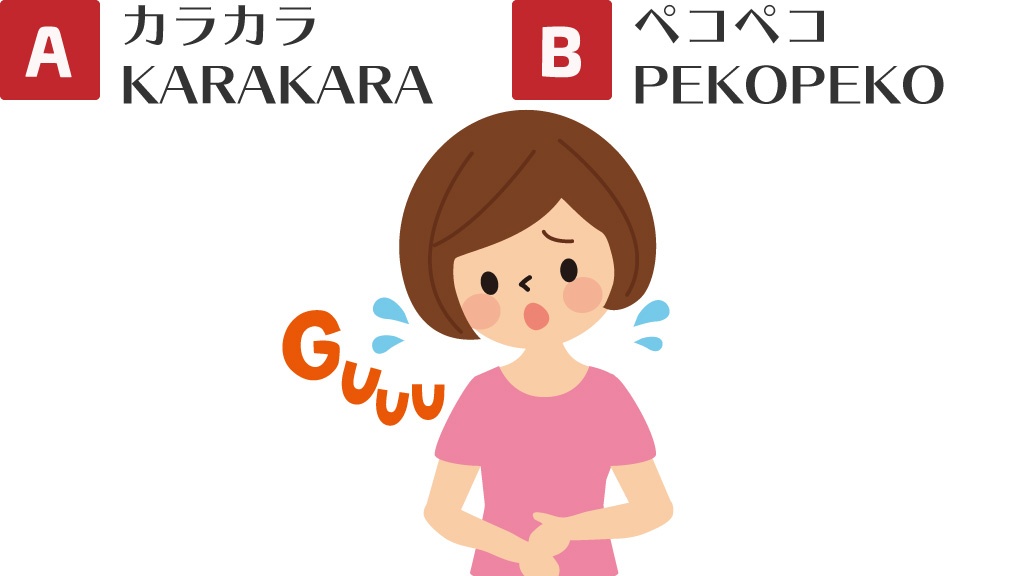
Correct answer: B
“PEKOPEKO” refers to the state of being really hungry. “KARAKARA”, on the other hand, refers to a dry state, so is often used to express thirst or when a pond is dried up.
会議室に入るときは、扉を開ける前に〇〇とノックしましょう。
Before entering the meeting room, you should knock in a 〇〇 way before opening the door.

Correct answer: A
“KONKON” refers to the light, bright sound made when hitting something hard, as in when knocking on a door. “BANBAN” refers to the heavy sound when hitting something or placing something down with all one’s might.
〇〇と舞い落ちる桜の花びらがきれいだ。
The 〇〇 falling cherry blossom petals are beautiful.
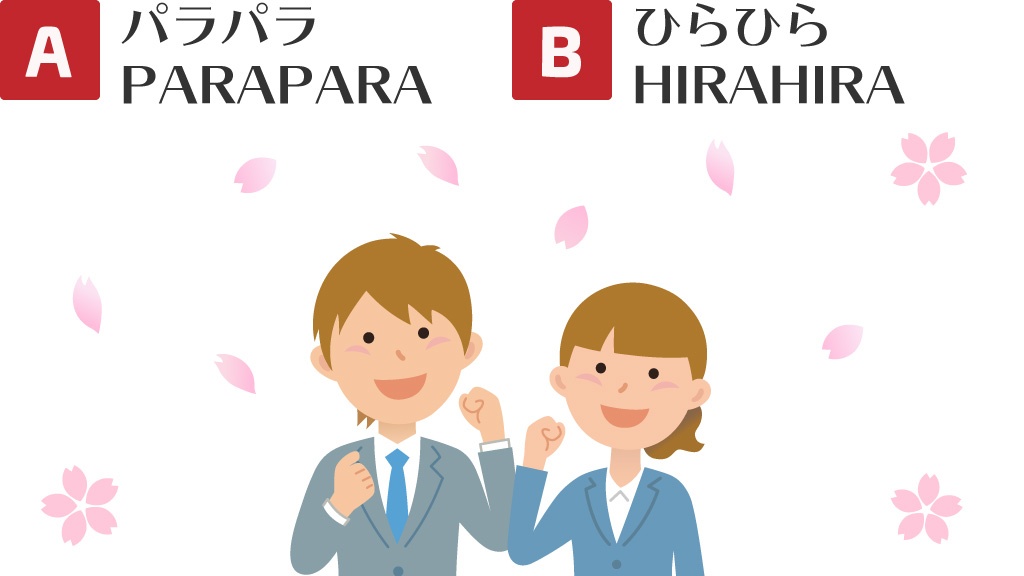
Correct answer: B
“HIRAHIRA” refers to something thin and light, such as petals or leaves, floating down through the air. “PARAPARA”, on the other hand, is the sound made when something light sparsely falls, such as rain or leaves. It is also used for the sound made when lightly turning the pages of a book.
花粉症なので、春は鼻が〇〇する。
I have hay fever, so my nose is 〇〇 in spring.
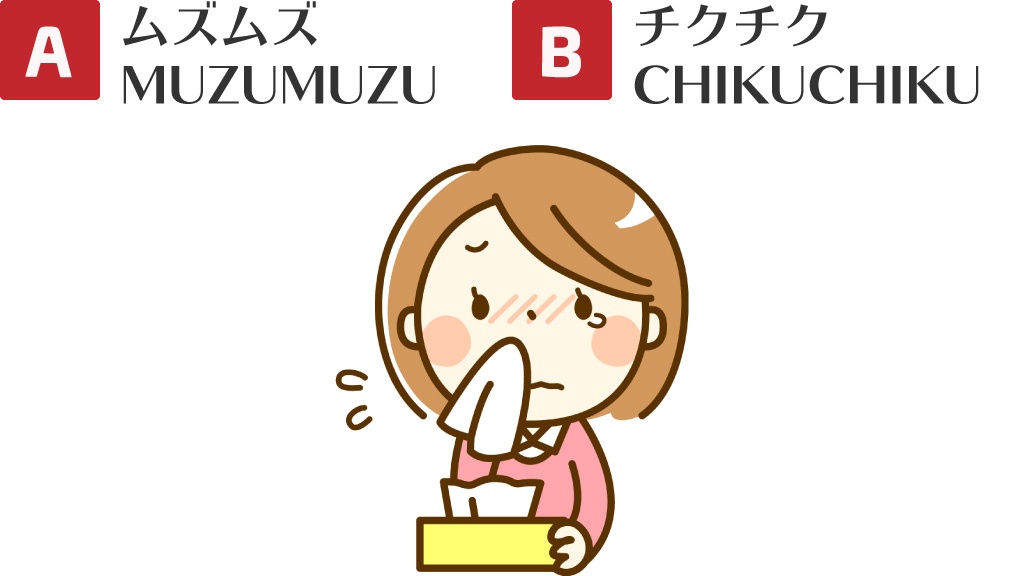
Correct answer: A
“MUZUMUZU” is the feeling uncomfortable physically or mentally. On the other hand, “CHIKUCHIKU” is the feeling of being repeatedly stabbed little by little by something with a tip, or the itchiness or pain that this stimulation produces. It is also used for being repeatedly ironic or sarcastic, such as in “they were continuously sarcastic towards me”.
建物の入り口が分からず〇〇してしまった。
I could not work out the entrance to the building, so I was 〇〇.
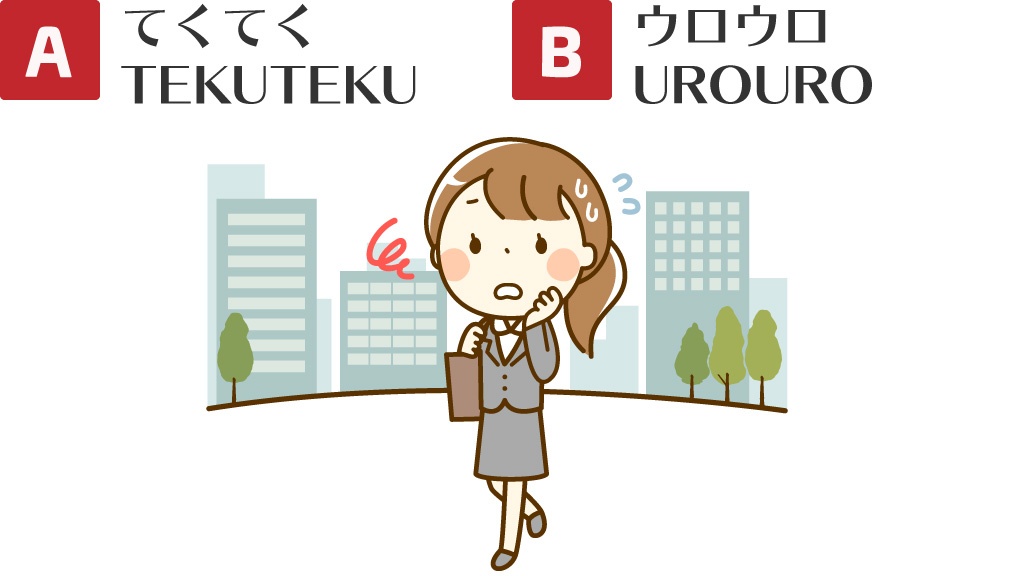
Correct answer: B
“UROURO” refers to the state of not knowing what to do or moving around aimlessly. “TEKUTEKU”, on the other hand, refers to the condition of walking continuously in the same way.
重要なことを伝え忘れ、上司が〇〇に怒ってしまった。
I forgot to communicate something important, and my boss was〇〇.

Correct answer: B
“KANKAN” refers to the state of being really angry, to the extent that the other person is unlikely to be forgiven right away. “RUNRUN” refers to the state in which you have a release of mood to the extent that you are likely to hum spontaneously.
Reference:
『ONOMATOPE The Fantastic World of Japanese Symbolic Words』Natsume, 2019
- [Explained by a Legal Professional] Points to consider when you wish to work in Japan
- Advantages and Disadvantages of Making a Second Rakuten Card
- What are “Wagara (traditional Japanese patterns)”? Meaning and Prayers Accompanying the Main Japanese Patterns
- How to Write/ “Taishokunegai (Resignation Requests)” and “Taishokutodoke (Resignation Notices)”
- Types of Tea Often Drunk in Japan and Their Characteristics





